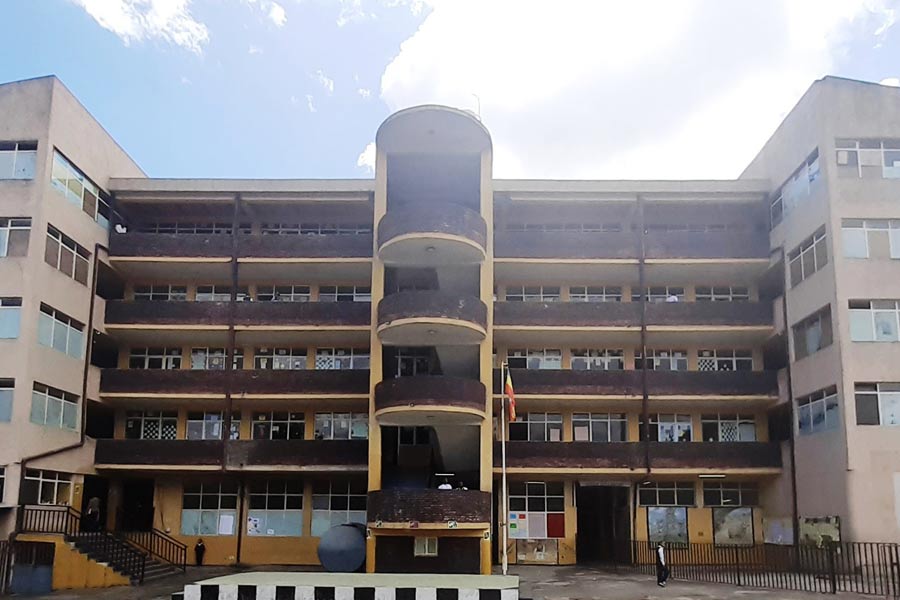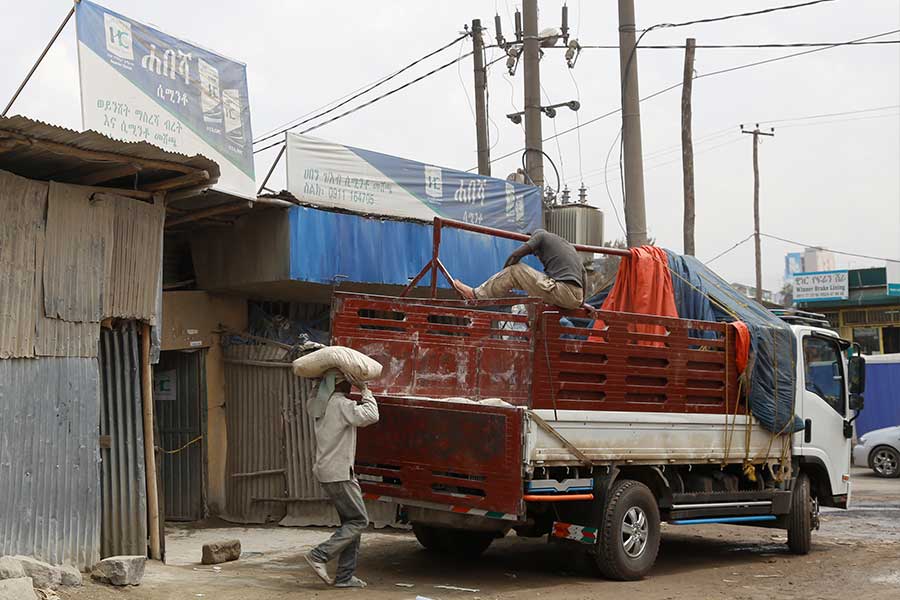
Viewpoints | Mar 30,2024
A two-year-old regulation limiting the load capacity of trucks on the road is sparking concerns among freight truck drivers. Set to be enforced in two months by the Ethiopian Roads Administration (ERA), the regulation will levy fines of up to 65,000 Br on owners who exceed weight caps. This move aligns with the Tripartite Transit & Transport Facilitation Program (TTTFP), an agreement among 26 sub-Saharan countries to streamline cross-border travel.
Administration officials met with freight and truck transport owners at their headquarters near Mexico Rd last week to discuss the regulation, which includes strict caps based on the number and location of axles. Sisay Bekele, deputy of Corporate Affairs, expects the new rules to reduce road damage. He said weighbridges will be fortified nationwide to improve control, particularly in high-traffic export-import corridors.
"A kilometre costs millions to build," he told Fortune.
The regulation has decreased the load capacity on a truck's three rear axles by two tons while limiting the total weight (including its freight) to 56tns. Four rear-axled vehicles are also banned under the regulation.
Out of the 14 weighbridges in the country, only eight are currently functional, located in Jimma, Sendafa, Awash, Mojo, Sululta, Holeta, Kombolcha, and Semera.
Yared Alemayehu, manager at the Mojo weighbridge, said increased security personnel and advanced technology equipment will be needed to enforce the new regulation properly. He noted that drivers attempt to evade weighbridges, penalising up to 40 trucks some days by using alternative routes without enhanced supervisory capacity.
"The institutions that contract the drivers must be responsible," Yared told Fortune.
While the Mojo bridge penalises drivers as much as 2,000 Br for exceeding the load capacity limit, the manager hopes that more penalties and subsequent directives will help decrease violations.
"We also need more personnel," he said.
Transport infrastructure experts like Bekele Teklu (PhD) suggest increasing revenue by imposing tickets or fees before trucks reach weighbridge stations. He said similar laws exist in other countries that help mobilise sufficient funds for the constant maintenance required for busy roads.
"All roads require rehabilitation," Bekele told Fortune.
With two decades of experience, Bekele identifies the low revenue mobilisation capacity of road management officials as part of the problem limiting the lifespan of roads in the country.
"More weighbridge stations should be built," he said.
However, officials have a different concern.
Yoseph Tamru, head of Road Network Asset System Management at Administration, said the main goal is to increase the lifespan of roads, which have been built with public finance. He believes that most drivers know the damage they cause to the roads before beginning their journeys.
"That is why they try to avoid weighbridges," Yoseph told Fortune.
He does not believe limiting carrying capacity will increase costs, as most vehicle owners do not want additional risks to their cars, which would entail extra costs on spare parts. Yoseph said they can improve haul management through better efficiency while also decreasing potential road damage.
A similar sentiment is echoed by Kassahun Bejiga, head of the Road Fund Directorate. He expects additional revenue from penalties to fund road maintenance, as heavy trucks cause most road damage despite generating low revenue.
"We have to expand revenue generation mechanisms," Kassahun told Fortune.
The Directorate collects transit fee charges of 15 dollars for a vehicle and receives a portion of annual renewals and a cut from the Value Added Tax on fuel sales. Last year, this amounted to 7.2 billion Br, nearly 93pc of which was used for road maintenance. He emphasised that ensuring road infrastructure can last up to 15 years requires constant maintenance, especially on roads with high vehicle traffic.
"It is far from enough," said Kassahun.
Industry players expect a rise in overhead costs as the restrictions on truckload capacity limit revenues for transporters, who are already dealing with price hikes due to rising fuel costs and inflated spare parts. Dejene Luche, communication director of the Ethiopian Transport Employers Association, said the fees are exaggerated. He believes the implementation is rushed and lacks proper consultation with transporters.
"What will happen to vehicles which can carry higher loads?" he questioned.
Freight truck drivers are anxious over potential implementation gaps.
Tewodros Yohannes, deputy chairman at Ethio Mieraf Cross-border Freight Transport S.C., expects the new regulation to increase room for corruption rather than decrease road damage. He said insufficient dialogue between transporters and authorities could lead to implementation problems.
"The law is not the problem, but the enforcement," Tewodros told Fortune.
He pointed out that the 300 freight trucks within their company can load up to 400Qtl, which will be reduced to 360Qtl under the new rules. Tewodros foresees an increase in demurrage costs for the government and importers as the amount each truck can bring into the country decreases. He recalled instances where their trucks carried 450Qtl of fertiliser during high-demand seasons, illustrating the complexity of outright capping load capacity.
"It has multiplier effects," he said.
PUBLISHED ON
May 25,2024 [ VOL
25 , NO
1256]

Viewpoints | Mar 30,2024

Radar | Oct 12,2019

Fortune News | Aug 01,2020

Agenda | Dec 30,2023

Fortune News | Oct 21,2023

Fortune News | Jun 05,2021

Fortune News | Feb 06,2021

Fortune News | Jun 14,2020

Radar | Dec 17,2022

Fortune News | Jan 07,2024

Dec 22 , 2024 . By TIZITA SHEWAFERAW
Charged with transforming colossal state-owned enterprises into modern and competitiv...

Aug 18 , 2024 . By AKSAH ITALO
Although predictable Yonas Zerihun's job in the ride-hailing service is not immune to...

Jul 28 , 2024 . By TIZITA SHEWAFERAW
Unhabitual, perhaps too many, Samuel Gebreyohannes, 38, used to occasionally enjoy a couple of beers at breakfast. However, he recently swit...

Jul 13 , 2024 . By AKSAH ITALO
Investors who rely on tractors, trucks, and field vehicles for commuting, transporting commodities, and f...

Oct 25 , 2025
The regulatory machinery is on overdrive. In only two years, no fewer than 35 new pro...

Oct 18 , 2025
The political establishment, notably the ruling party and its top brass, has become p...

Oct 11 , 2025
Ladislas Farago, a roving Associated Press (AP) correspondent, arrived in Ethiopia in...

Oct 4 , 2025
Eyob Tekalegn (PhD) had been in the Governor's chair for only weeks when, on Septembe...